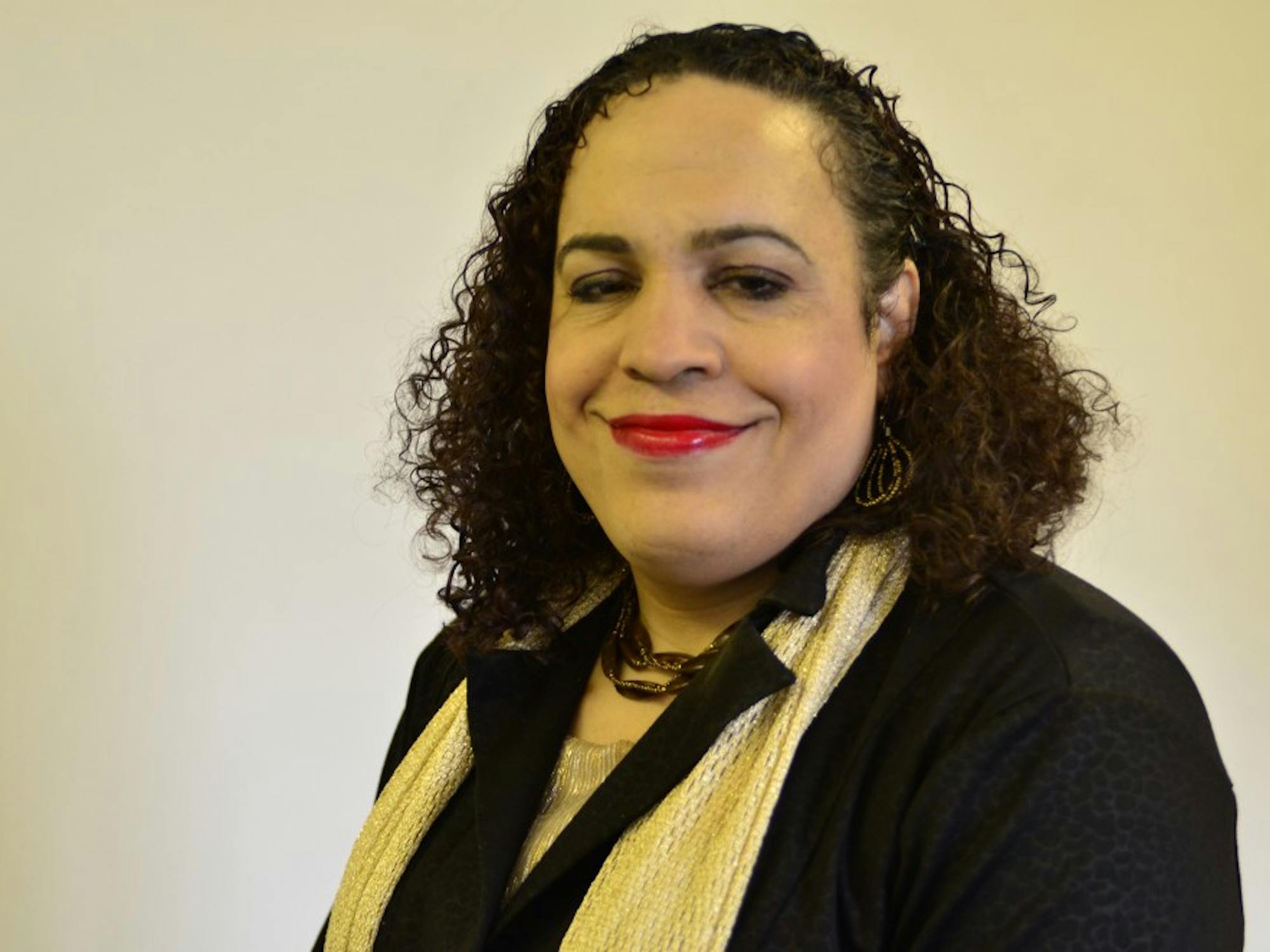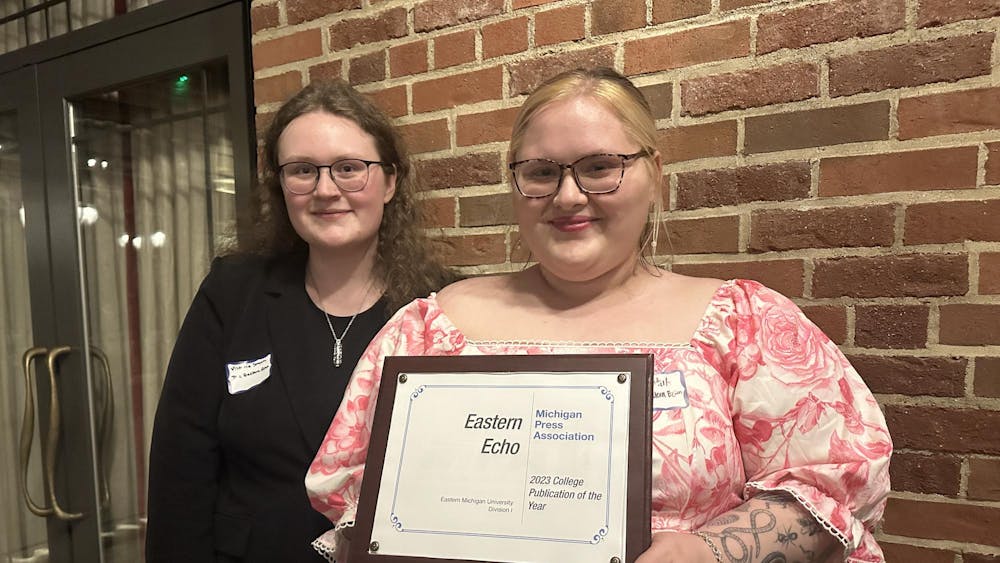“She stands in the quiet darkness, this troubled woman bowed by weariness and pain like an autumn flower in the frozen rain, like a wind-blown autumn flower that never lifts its head again.”
-Langston Hughes, “Troubled Woman.”
Aug. 6, 2002 marks a moment of time when a lifelong internal battle was the breaking point that almost permanently silenced Eastern Michigan University alumnus David Edward Morris, who found himself lying in the University of North Carolina Medical Center dealing with bouts of depression, anxiety and gender identity issues causing a suicide attempt.
Faced with a life-changing choice—either live an unfulfilled life fighting his identity, or embrace it and become the person he was meant to be; David acknowledged the truth and as the internal shield began to crack and crumble, Jala emerged.
Now 10 years later Jala McKenzie-Burns, 47, has come a long way from those troubled days and walks with a renewed energy and sense of empowerment as a transgender woman. Author of “Climbing Life’s Mountains: Overcoming Challenges of Biracial Birth, Adoption, Gender Identity and Depression,” she shares the personal struggles and triumphs during the journey of self-reflection and self-discovery to be used as a teaching tool for overcoming obstacles and identifying self-worth.
“I prayed a lot on this book,” McKenzie-Burns said. “My prayer was that it helps many people. So, when I wrote the book my focus was to share my life’s mountains that I climbed. If I can climb them others can as well.”
After engaging in a phone conversation on taking the initiative of educating the public through mainstream media such as the documentary “TRANS,” she jumped at the opportunity to come to Ypsilanti to meet with me and help bring awareness—driving 10 hours from North Carolina. Since her arrival, McKenzie-Burns has received a warm welcome from the EMU community, and in return, has offered her voice to the often underrepresented transgender population of the LGBT community.
“I wanted to help the people who are struggling with gender identity. I want to help those who are at the beginning of their journey because it is a long journey, and I also want to help the non-transgender community as well because the support is there,” she said. “As I travel with my book people are welcoming me with open arms, but what they’re saying is thank you. Thank you for the education, because people are so accepting now that they just want to know more. What is transition? What is gender?”
McKenzie-Burns, born on Nov. 11, 1965 in Detroit, openly depicts the story of her birth to a Caucasian mother, who was clinically depressed, and an African-American father who suffered from alcoholism. While researching information about her biological family and adoption, she learned various versions as to why she was left at the hospital and placed for adoption. Her mother, who escaped the hospital, didn’t want to keep her on the run and her maternal grandparents denied her for racial reasons.
As a young child living in various foster homes until settling with Howard and Willa Burns and an adoptive brother, Derrick, the internal gender conflict was always a matter that wasn’t addressed for fear of violence and alienation.
To suppress the feminine nature, she became involved in masculine activities by playing sports, joining a fraternity and enlisting in the U.S. Marine Corps, much to her mother’s disapproval, as well as getting married and having a son in 1991.
“Throughout my life, I fought my gender, what I call ‘identity gender conflict,’ because back in those days it wasn’t accepted,” she said. “So I continued to fight.”
In 2000, the death of her adoptive father Howard Burns and the ending of her marriage in 2003 contributed to her struggling with depression.
Transitioning brought concerns of acceptance from loved ones as well as society. Though it was liberating to begin life as Jala, her mother excluded her from her life until she died in Dec. 2010.
She described the events in her book: “In July 2003, while my mother was expressing her disapproval of my gender transition she advised me to find my biological family and that I needed to end our relationship. While my mother was kicking me out of her life she was also giving me a gift which led to the reconnection of me and my biological family.”
While traveling the country and through sharing her story, McKenzie-Burns has met a wide range of equally inspirational individuals with similar issues of transitioning and acceptance.
Contrary to the societal portrayal of transgender women as a spectacle, carrying one’s self with dignity and acknowledging your worth is a powerful declaration that she inspires all to value.
“Just because I’m a transgender woman doesn’t mean I am weak,” she said. “It means strength because I’ve fulfilled who I am. Gender is not a choice; people don’t realize that. I use to tell people that I didn’t just flip a light switch one day and say, ‘Now I’m a female.’ I’ve always been a female. I didn’t know how to go about positioning myself as the female that I am now because of fear and internal conflict. That’s not a choice, now where the choice is, ‘What do you do with it?’”
More are joining the transgender movement, which Vice President Joe Biden said is “the civil rights issue of our time.” McKenzie-Burns joins other transgender individuals like Janet Mock, Chaz Bono and Isis King, who are making strides to change perspectives and shine a light on a group of extraordinary people.
After all the trials and tribulations she has endured, she has emerged on the other side to see the effects of her endearing presence on those she encounters. She effortlessly continues to serve her purpose of helping others find their way.
“My most prized accomplishment, I would say, is that society now is opening their arms and is willing to learn more and just accept me as an everyday human and as a woman just like you and other females,” she said. “The poem ‘Troubled Woman’; I’m no longer a troubled woman. I’m not like that tulip raising its head for a final time. I am now a happy woman.”










